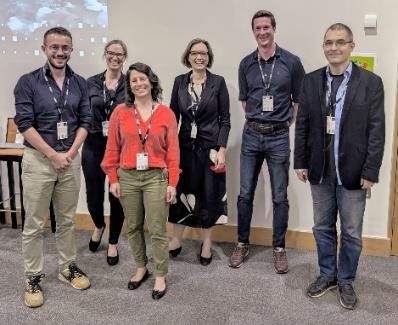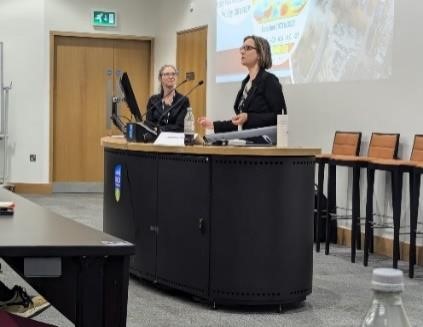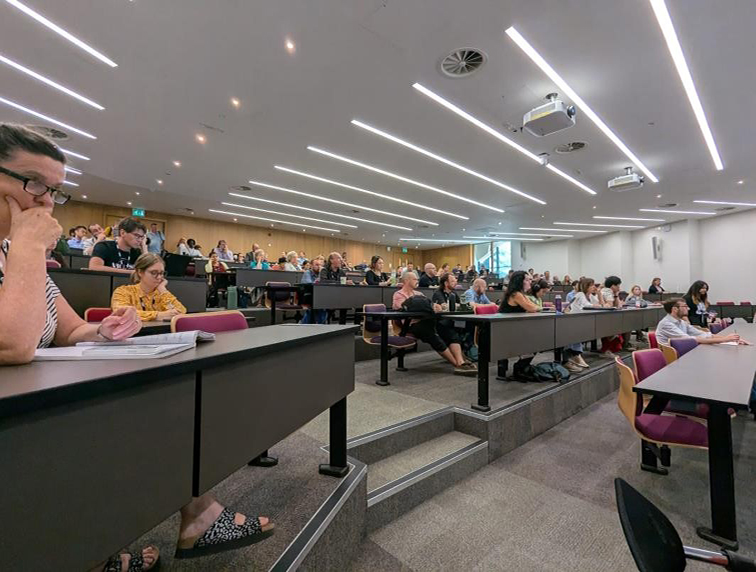The 7th quarterly newsletter of the ECPR Standing Group on Methods of Normative Political Theory
Click here to download the September 2024 newsletter as a pdf-file
On behalf of the Standing Group on Methods of Normative Political Theory, we are happy to announce that the quarterly newsletter of the Methods of Normative Political Theory will appear at the beginning of March, June, September, and December. The newsletters will remain accessible on the standing group’s website. We are happy to receive your updates regarding new publications, calls for proposals, events, Summer / Winter PhD Courses and job advertisements pertaining to methods of political theory by email to ecprmethods@gmail.com
“Dear Methodologists, can you believe it’s now been a full year of newsletters? Many thanks to our upstanding team of Esma/Ed/Ilkin for making that happen, and indeed for doing it so well. In that same time we’ve also been, as a group, as busy as Mandeville’s bees. A buzzing workshop in Lüneburg; a hive of activity in Dublin; and not one moment where you felt anyone was just droning on, or indeed stretching out a bad pun about bees. Honeyed highlights in all of this included the brainstorming group sessions in between papers at the workshop (thanks again to Svenja/Janosch!), the packed plenary event at the conference (thanks to co-ordination across all four theory Standing Groups!), the seven fascinating panels organised either side of that event (thanks Esma/Simon!), but also the social/intellectual activities we increasingly make our signature in all those gaps in between. These included group walks, group dinners, group drinks, and even this year a rather longer/larger drinks event in Dublin, again co-ordinated with our fellow theory-groupings in the ECPR, with about a hundred of us in a fine old Victorian pub, running up a tab that almost but not quite got paid in full (I suggest we don’t go back there anytime soon, though personally think it was the Kantians who decided to free-ride). Next year promises more of the same, though with hints of bigger and better already percolating. More on that, no doubt, in our next newsletter.”
Jonathan Floyd
Upcoming Academic Events
Plans for the Future – Save the Date!
ECPR Joint Sessions of Workshops 2025
20-23 May 2025
Charles University, Prague, Czech Republic
A proposal is being submitted on behalf of the standing group on the topic of ‘exploring the interplay between normative political theory and empirical political science’
ECPR General Conference 2025
26-29 August 2025
Aristotle University, Thessaloniki, Greece
A proposal will be submitted on behalf of the standing group!
Past Academic Events
ECPR General Conference 2024
12 to 15 August 2024, University College Dublin, Ireland
The 2024 ECPR general conference in Dublin assembled us around the section “Methods on Normative Political Theory”, including more than 7 panels, the section co-chaired by Simon Stevens (De Montfort University) and Esma Baycan-Herzog (University of Geneva) offered a venue to discuss the ongoing work in political theory methodology. Alongside, section had its own dinner, morning walk and other various activities, meeting new people and refreshing the already existing connections. Allowing all to plan for a future together with various activities…
Our Best Wishes for 2024-2025 Academic Year!




Recent publications
Jonathan, Leader Maynard. (2024). “The Logic of Idealization in Political Theory.” American Journal of Political Science.
Jonathan, Leader Maynard. (2024). “What Is Political Moralism?” Topoi.
Special Issue “Migration and Discrimination“ in Ethics and Global Politics, (2024), Vol: 17(2,3)
This special issue consists of four articles, contributed by David Owen; Désirée Lim, Sahar Akhtar and (as co-authors) Mollie Gerver, Miranda Simon, Patrick Lown and Dominik Duell. These contributions address issues related to migration policies with the aim of bringing normative theories of migration and discrimination into dialogue. Such a dialogue is possible when some weak theoretical presuppositions related to methodological nationalism are removed. These theories describe the various types of discrimination inherent in the domestic and global migration systems, as well as assess arguments, pro et contra, about whether these forms of discrimination are permissible. Th
Esma, Baycan-Herzog, Annamari, Vitikainen and Kasper Lippert-Rasmussen (2024). Migration and discrimination: Exploring the pathways of a more integrated research agenda. Ethics & Global Politics, 17(2–3), 1–8.
David, Owen. (2024). The value of the concept of discrimination in contexts of migration: The case of structural discrimination. Ethics & Global Politics, 17(2–3), 9–26.
Mollie, Gerver, Miranda, Simon, Patrick, Lown and Dominik Duell. (2024). The immigration discrimination dilemma. Ethics & Global Politics, 17(2–3), 27–50.
Désirée, Lim. (2024). Bordering and status-harms. Ethics & Global Politics, 17(2–3), 51–67.
Akhtar, S. (2024). Discrimination and the exclusion of people with disabilities. Ethics & Global Politics, 17(2–3), 68–82.
Editorial Team
Ilkin Huseynli is a doctoral candidate in political philosophy at the University of Milan under the supervision of Ian Carter and Nicola Riva. His thesis focuses on social freedom and investigates if the concept of interpersonal freedom is normatively relevant. Ilkin responds positively and aims at articulating why this is so, as well as in what ways this relevance can be understood. His works have appeared in The Pluralist, Journal of Political Power, and edited volumes by Springer and Editions de l’Université de Bruxelles.
Esma Baycan-Herzog is a Lecturer in Political Theory at the University of Geneva and an affiliated member of the Swiss consortium of research NCCR—On the Move. Her research interests include ethics and politics of migration; political theory methodology; multiculturalism; ethics of digital societies; (sub-state) nationalism; legitimacy of international institutions and experimental political theory. Her current and future editorial experience includes special issues in journals such as Ethnicities and Ethics and Global Politics. Her extant and future publications can be found in journals such as Ethnicities, Danish Yearbook of Philosophy, Ethical Perspectives, as well as contributions to edited volumes published by Brill, Nomos, and ECPR Press.
Edmund Handby is a Postdoctoral Associate in the Department of Political Science at Duke University. His research examines methodological questions in the history of political thought, empirically informed political theory, and politics, philosophy, and economics. His work has appeared in The Journal of Politics and The Journal of the Philosophy of History. He has also guest-edited a special issue on Jonathan Floyd’s ‘Is Political Philosophy Impossible’, out in Political Studies Review.

